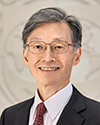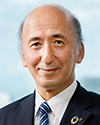Managing Financial Risks in a Shock Prone World - Lessons from the past and challenges ahead
November 17, 2022, Tokyo, Japan
The COVID-19 pandemic, geopolitical conflicts, and high inflation are testing the resilience of the global economy and financial systems. We must prepare for these new challenges to secure financial stability. The IMF, together with The University of Tokyo’s Center for Advanced Research in Finance (CARF), hosted the policy conference “Managing Financial Risks in a Shock Prone World” in hybrid format to bring together veteran and current policymakers and researchers from around the world to offer their insights on how to best manage financial risks and avoid financial crisis.
*Conference information in Japanese is also available on the university’s website.
Agenda
|
Thursday, November 17 |
|
|
8:30 AM |
Opening of the venue |
|
9:00 AM |
Opening Remarks
|
|
9:10 AM |
Keynote Speech
|
|
9:30 AM |
Session I: Globalization Unwound? Moderator: Kenichi Ueda, Professor and CARF Director, The University of Tokyo Panelists:
Issues for discussion |
| 10:40 AM |
Coffee Break |
| 11:00 AM |
Session II: Lessons from the crisis response to COVID-19 Moderator: Ryozo Himino, Visiting Professor, Graduate School of Public Policy, The University of Tokyo Panelists:
Issues for discussion |
| 12:10 PM | End of the public sessions |
*Online participation
Speakers and Panelists
Speakers Bios| Opening Remarks | Keynote Speech & Session 1 Panelist |
|
|
|
| Session 1 Moderator | |
|
|
|
| Session 1 Panelists | |
|
|
|
|
|
|
| Session 2 Moderator | |
|
|
|
| Session 2 Panelists | |
|
|
|
|
|
|
Note: This conference was also supported by two entities of the university, the Graduate School of Public Policy and the Institute for Future Initiatives.




 Kenji Okamura
Kenji Okamura

 Beatrice Weder di Mauro
Beatrice Weder di Mauro Asako Aoyama
Asako Aoyama

 Andrew Metrick
Andrew Metrick Stijn Claessens
Stijn Claessens
